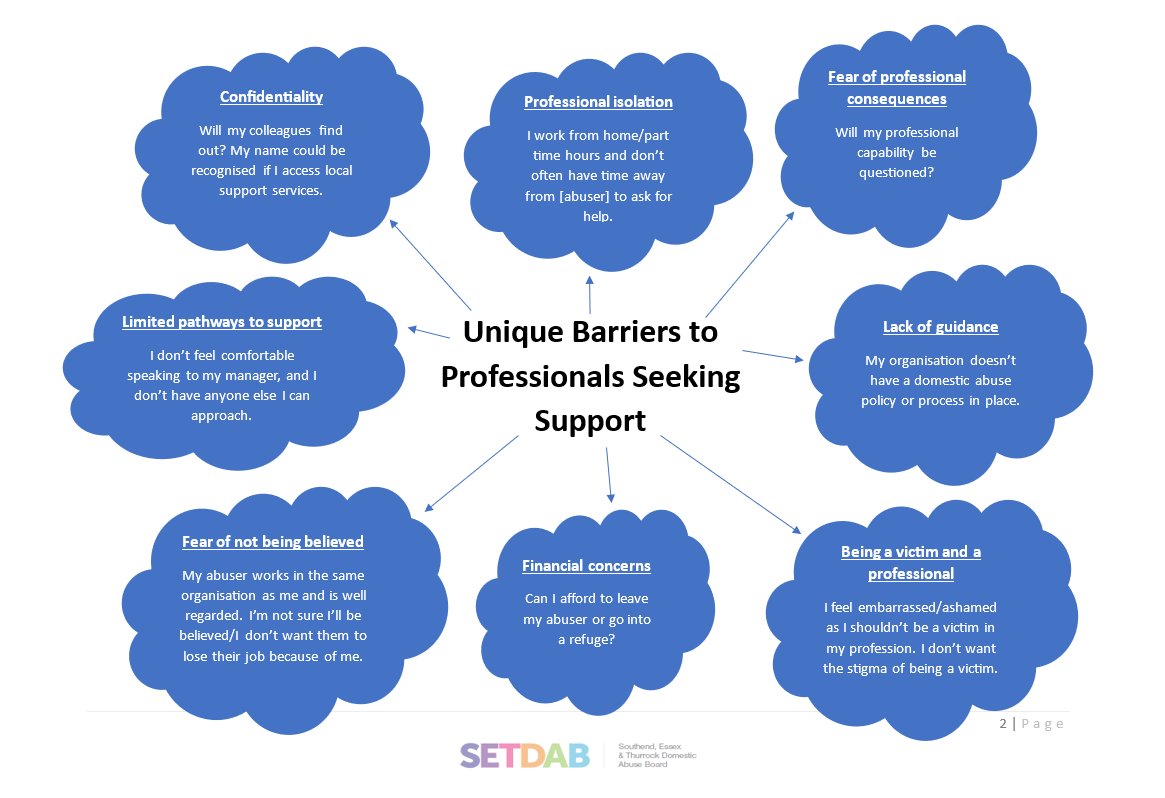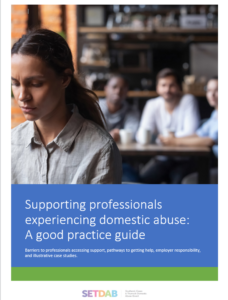Supporting professionals experiencing domestic abuse
One in five adults experience domestic abuse, one in three women and one in six men. It’s important to recognise anyone can be a victim of domestic abuse. There are unique challenges faced by professionals and those working within domestic abuse services if they themselves become victims.
Unique barriers professionals face
Employer responsibility
Employers have a duty of care to support employees experiencing domestic abuse. Staff members may be worried about seeking help due to fear of being known by colleagues, potential professional consequences, stereotypes, along with many other barriers.
Both abusers and victims can be part of our communities and workplaces, therefore it’s important to respond to both. It’s important to understand that people who commit domestic abuse may also need help and face challenges in getting it.
We recommend organisations review their domestic abuse policies. Are they effective and accessible? Check your intranet or notice boards for support options.
Read our good practice guide to learn how to better support professionals facing domestic abuse and understand the unique barriers they encounter.
Download the full Supporting professionals experiencing domestic abuse: A good practice guide here.
View pathways professionals can access to gain support.
Case studies
Read Ellie’s story – “My role involves supporting others experiencing domestic abuse, and I felt like I’d appear incompetent because I was struggling myself.”
Read Amy’s story – “Being a victim of domestic abuse doesn’t define my ability to do my job.”
Read Sarah’s story – “I know that the shame and embarrassment I felt should not have stopped me from seeking help.”
Download file here


